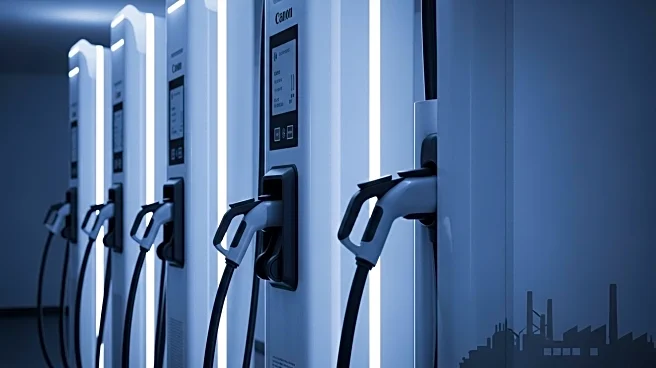What's Happening?
Hyundai's battery plant in Georgia, operated through a joint venture with LG Energy Solution, is facing a delay of at least two to three months following an immigration raid. The raid, conducted by the U.S. Department of Homeland Security, resulted in the detention of approximately 475 workers, primarily South Korean nationals. Hyundai CEO Jose Munoz expressed surprise at the raid and noted that the workers involved were mainly employed by LG's suppliers. The plant, part of a $7.6 billion complex, was initially scheduled to begin operations later this year. In response to the delay, Hyundai plans to source batteries from other facilities, including a Georgia plant co-owned with SK On.
Why It's Important?
The delay in the startup of Hyundai's Georgia battery plant could have significant implications for the automotive industry, particularly in the production of battery-powered models. The raid highlights the challenges faced by international companies operating in the U.S., especially regarding immigration and labor issues. The delay may impact Hyundai's production timelines and its ability to meet market demand for electric vehicles. Additionally, the situation underscores the importance of compliance with U.S. immigration laws and the potential consequences of enforcement actions on business operations.
What's Next?
Hyundai will need to address the labor shortage caused by the raid and find ways to fill the positions left vacant by the detained workers. The company may face challenges in sourcing skilled labor within the U.S., which could further delay the plant's startup. The situation may also prompt discussions between the U.S. and South Korean governments regarding immigration policies and their impact on international business operations. Hyundai's reliance on other battery plants in the interim may affect its production capacity and supply chain dynamics.









